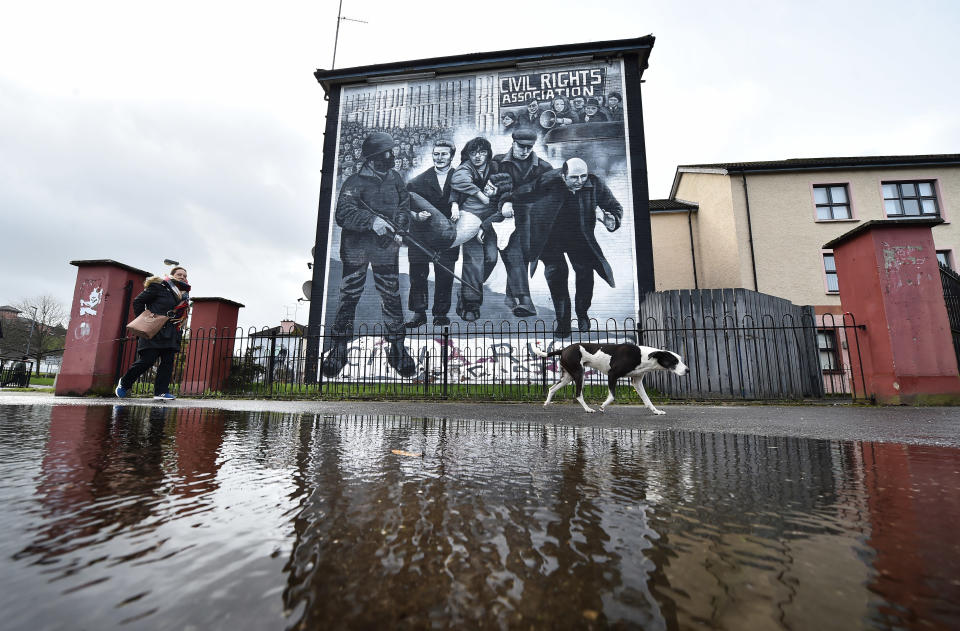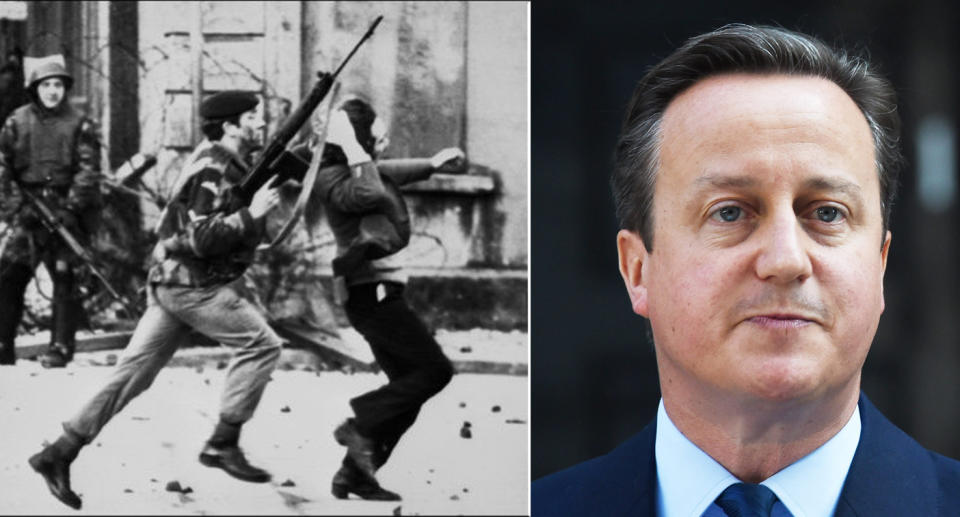Historic Bloody Sunday murder trial of ex-soldier divides Britain nearly 50 years on
A former British soldier charged with murdering two civilians in the 1972 Bloody Sunday killings faces an initial court hearing on Wednesday.
The emblematic case is being heard in Londonderry, the border city where the killings took place, and is highly divisive in a province haunted by the legacy of conflict.
British troops opened fire on a civil rights demonstration in the Northern Irish city of Londonderry on January 30, 1972 killing 13 people.
A 14th victim later died of his wounds.
The day has become one of the most symbolic in the grim history of the Troubles –the sectarian unrest which gripped the British province of Northern Ireland.

In addition to two murder charges, the ex-paratrooper, identified only as "Soldier F", faces charges of the attempted murder of four others.
But he will not be present during the first day of proceedings in Londonderry, where security is likely to be high.
"Soldier F" was one of 17 British veterans who had faced investigation, plus two alleged Irish Republican Army (IRA) paramilitaries.
But he was the only one charged by Northern Ireland's public prosecutor in March following decades of investigations.
The announcement infuriated supporters of Britain's military intervention in Northern Ireland, prompting marches in support of the soldier in Belfast and London.
Families of victims call for ‘truth and justice’
British military and political communities remain divided over the matter.
Some believe prosecutions for historic crimes betray former troops who acted in good faith, equating them with terrorists.
Others feel the military should be held to the highest standard and any amnesty would be a tacit admission of guilt among those who served with integrity.
Families of those killed in Bloody Sunday, who have campaigned for prosecutions for nearly 50 years, broadly welcomed the trial but do not believe it alone will fully settle the matter.
"It's still an ongoing campaign," John Kelly, whose 17-year-old brother Michael was killed on Bloody Sunday, told AFP last month.
"What people want is truth and justice."

The British Parachute Regiment opening fire on a civil rights march in the majority Catholic area of the Bogside in Derry helped galvanise support for the Provisional IRA early in the Troubles.
A photograph of a Catholic priest waving a bloodstained handkerchief as he tried to help 17-year-old victim Jackie Duddy to safety became a defining image of the incident.
A 12-year public inquiry into Bloody Sunday, the largest investigation in UK legal history, concluded in 2010 that British paratroopers lost control and none of the casualties posed a threat of causing death or serious injury.

The probe prompted then-prime minister David Cameron to issue a formal state apology for the killings, calling them "unjustified and unjustifiable".
The Northern Ireland Veterans Association, which held a memorial event to mark the 50th anniversary of British military intervention earlier this year, said its members were "concerned" about such prosecutions.
"We need to learn to deal with our past," said NIVA spokesman Ian Simpson.
"We need to move forward together and have an understanding of what it meant."
Do you have a story tip? Email: newsroomau@yahoonews.com.
You can also follow us on Facebook and Twitter, download the Yahoo News app from the App Store or Google Play and stay up to date with the latest news with Yahoo’s daily newsletter. Sign up here.


